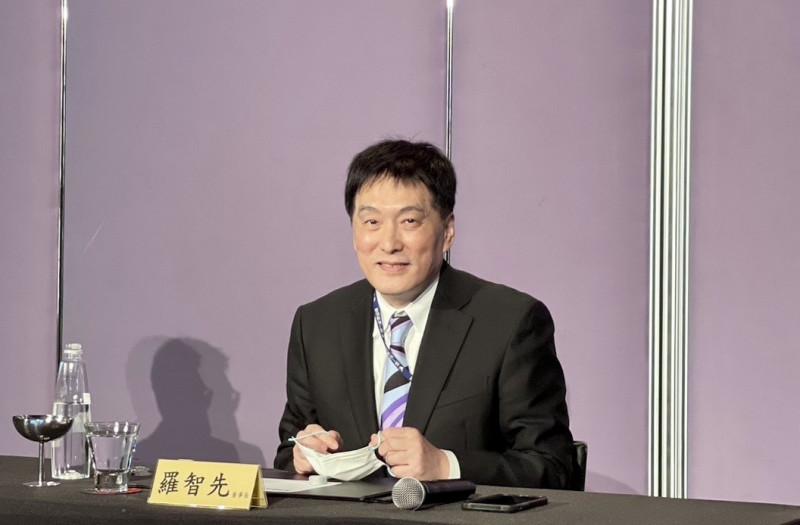Food conglomerate Uni-President Enterprises Corp (統一企業) intends to pursue 100 percent ownership of South Korean subsidiary Woongjin Foods Co through tender offers, the company said on Monday.
The company's board of directors approved a plan to acquire the remaining 20.68 percent stake in Woongjin Uni-President does not own to fully bring the South Korean food supplier under its corporate umbrella, it said in a statement.
Seeing the acquisition as a way to strengthen its sales and profitability, the conglomerate intends to spend 15.11 billion South Korean won (US$11.35 million) to acquire 6.57 million Woongjin shares, or a 10 percent stake in the company, from Monday to Feb. 23, it said.

Photo: Amy Yang, Taipei Times
The average share price of 2,300 won per share would represent a 91 percent premium over the 1,200 won the stock closed on Tuesday.
Once the acquisition of the initial 10 percent stake is completed, Uni-President will kick off the second phase of the plan to take 100 percent control of Woongjin, best known for its beverages, in particular teas and juices, it said.
In 2019, Uni-President acquired a 74.8 percent stake in Woongjin for US$229 million from private equity fund Hahn & Co and had since increased its holdings to 79.32 percent of the company's shares.
The acquisition of Woongjin's outstanding shares reflects the ambition of Uni-President Group chairman Alex Lo (羅智先), who wants to further extend the company's reach into Northeast Asia and establish a cross-Asia distribution platform, analysts said.
Uni-President began diversifying its business regionally in 2019 when it entered China's market by setting up an instant noodle production site in Beijing.
It then teamed up with Japanese partners to roll out food products in Southeast Asian markets, and has also set up production and operating hubs in the Philippines, Thailand, Vietnam and Malaysia.
In addition to food supplies, Uni-President has broadened its product portfolio by stepping into logistics, biotechnology, health and beauty retail, and department store operations.
Last year, the conglomerate acquired the 60 percent share of Carrefour Taiwan held by its French parent company to gain full ownership of the retail brand's operations in Taiwan.
In the Philippines, the conglomerate operates the 7-Eleven convenience store chain as it does in Taiwan.
Lo has said his goal is for Uni-President's annual sales to hit NT$700 billion (US$22.36 billion).
Last year, Uni-President had consolidated sales of NT $580.99 billion, up 10.74 percent from a year earlier.

In Italy’s storied gold-making hubs, jewelers are reworking their designs to trim gold content as they race to blunt the effect of record prices and appeal to shoppers watching their budgets. Gold prices hit a record high on Thursday, surging near US$5,600 an ounce, more than double a year ago as geopolitical concerns and jitters over trade pushed investors toward the safe-haven asset. The rally is putting undue pressure on small artisans as they face mounting demands from customers, including international brands, to produce cheaper items, from signature pieces to wedding rings, according to interviews with four independent jewelers in Italy’s main

Japanese Prime Minister Sanae Takaichi has talked up the benefits of a weaker yen in a campaign speech, adopting a tone at odds with her finance ministry, which has refused to rule out any options to counter excessive foreign exchange volatility. Takaichi later softened her stance, saying she did not have a preference for the yen’s direction. “People say the weak yen is bad right now, but for export industries, it’s a major opportunity,” Takaichi said on Saturday at a rally for Liberal Democratic Party candidate Daishiro Yamagiwa in Kanagawa Prefecture ahead of a snap election on Sunday. “Whether it’s selling food or

CONCERNS: Tech companies investing in AI businesses that purchase their products have raised questions among investors that they are artificially propping up demand Nvidia Corp chief executive officer Jensen Huang (黃仁勳) on Saturday said that the company would be participating in OpenAI’s latest funding round, describing it as potentially “the largest investment we’ve ever made.” “We will invest a great deal of money,” Huang told reporters while visiting Taipei. “I believe in OpenAI. The work that they do is incredible. They’re one of the most consequential companies of our time.” Huang did not say exactly how much Nvidia might contribute, but described the investment as “huge.” “Let Sam announce how much he’s going to raise — it’s for him to decide,” Huang said, referring to OpenAI

The global server market is expected to grow 12.8 percent annually this year, with artificial intelligence (AI) servers projected to account for 16.5 percent, driven by continued investment in AI infrastructure by major cloud service providers (CSPs), market researcher TrendForce Corp (集邦科技) said yesterday. Global AI server shipments this year are expected to increase 28 percent year-on-year to more than 2.7 million units, driven by sustained demand from CSPs and government sovereign cloud projects, TrendForce analyst Frank Kung (龔明德) told the Taipei Times. Demand for GPU-based AI servers, including Nvidia Corp’s GB and Vera Rubin rack systems, is expected to remain high,